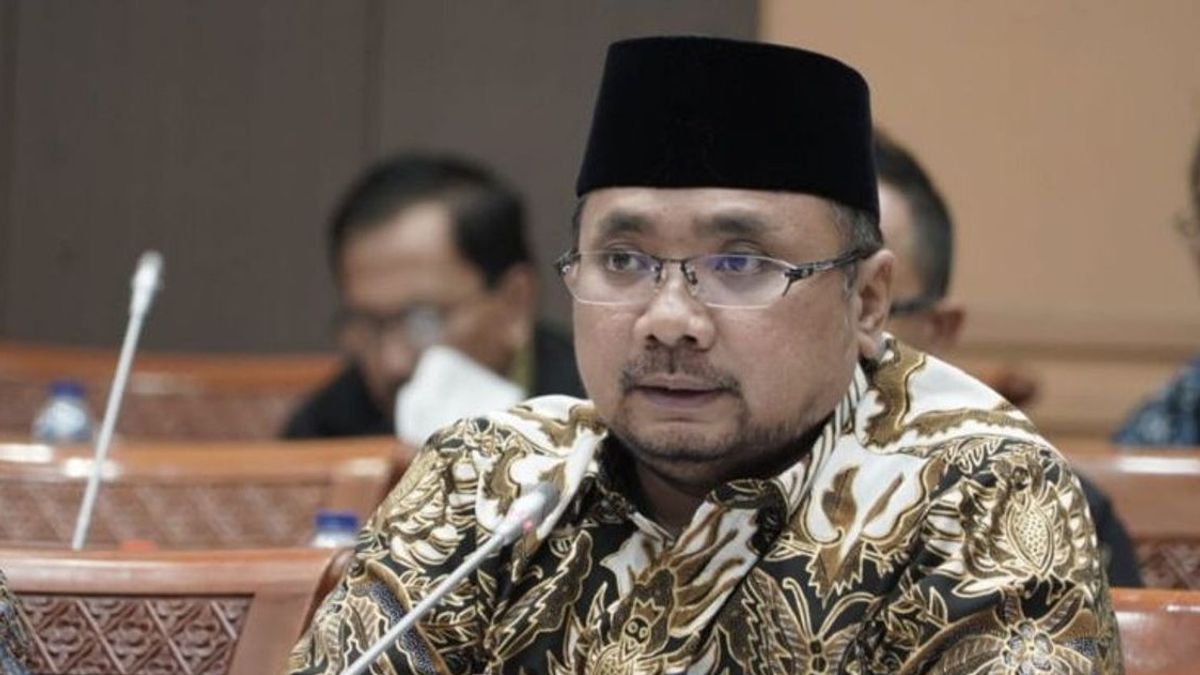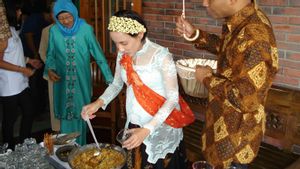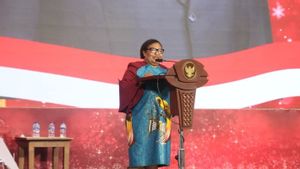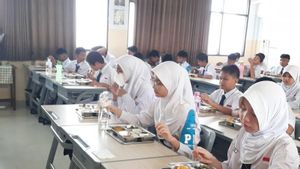JAKARTA - Minister of Religion (Menag) Yaqut Cholil Qoumas assessed that students have preserved the tradition of Nusantara sarong clothing because it is used in daily activities, as is often seen in Islamic boarding schools.
"The bag has been synonymous with students. We want to give realization while returning to gratitude by remembering the identity we have so far. Proud of our identity, that's the point," said the Minister of Religion, quoted from Antara, Sunday.
This was emphasized by the Minister of Religion during the Santri Nusantara Fashion Sarong event in a series of commemorations of Santri Day 2023 at the courtyard of the Grahadi State Building, Surabaya, Saturday (21/10) night.
According to him, sarong clothing has existed in the Land of the Archipelago since the majority of people embraced Buddhism in the era of the Sriwijaya Kingdom, in around the 7th century Masehi.
Still in the same century, when the majority of people embraced Islam, the students in Islamic boarding schools preserved the traditional clothing of the Indonesian ancestors until now.
Clothing has been used by people in the 7th century in the same form as what they have found until now. Only the motive is different.
Fashion Sarong Santri Nusantara with various motifs typical of various regions in the country is displayed by the finalists Raka-Raki or the East Java Tourism Ambassador in 2023.
Even singer Armand Maulana, who became a guest star, closed the event by appearing wearing sarong clothes.
"This is the first time I have performed singing on stage wearing a sarong," said the vocalist of the Gigi band.
Armand admitted that it is not easy to sing on stage wearing a sarong.
"Using a sarong feels a bit painful. Because I usually sing while jumping," he said after bringing two songs.
However, when he brought his next song Armand seemed to be used to the sarong worn on stage.
The husband of artist Dewi Gita has performed a total of seven of her popular songs. Even though they are wearing sarongs, they still amaze the invitees in the courtyard of the Grahadi State Building in their distinctive stage style.
The English, Chinese, Japanese, Arabic, and French versions are automatically generated by the AI. So there may still be inaccuracies in translating, please always see Indonesian as our main language. (system supported by DigitalSiber.id)













